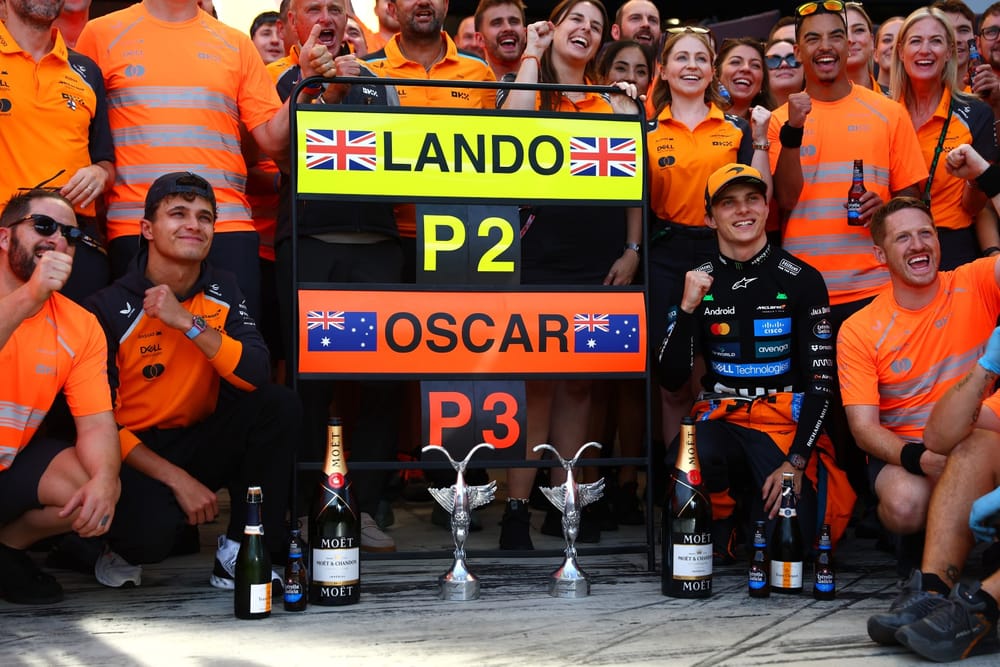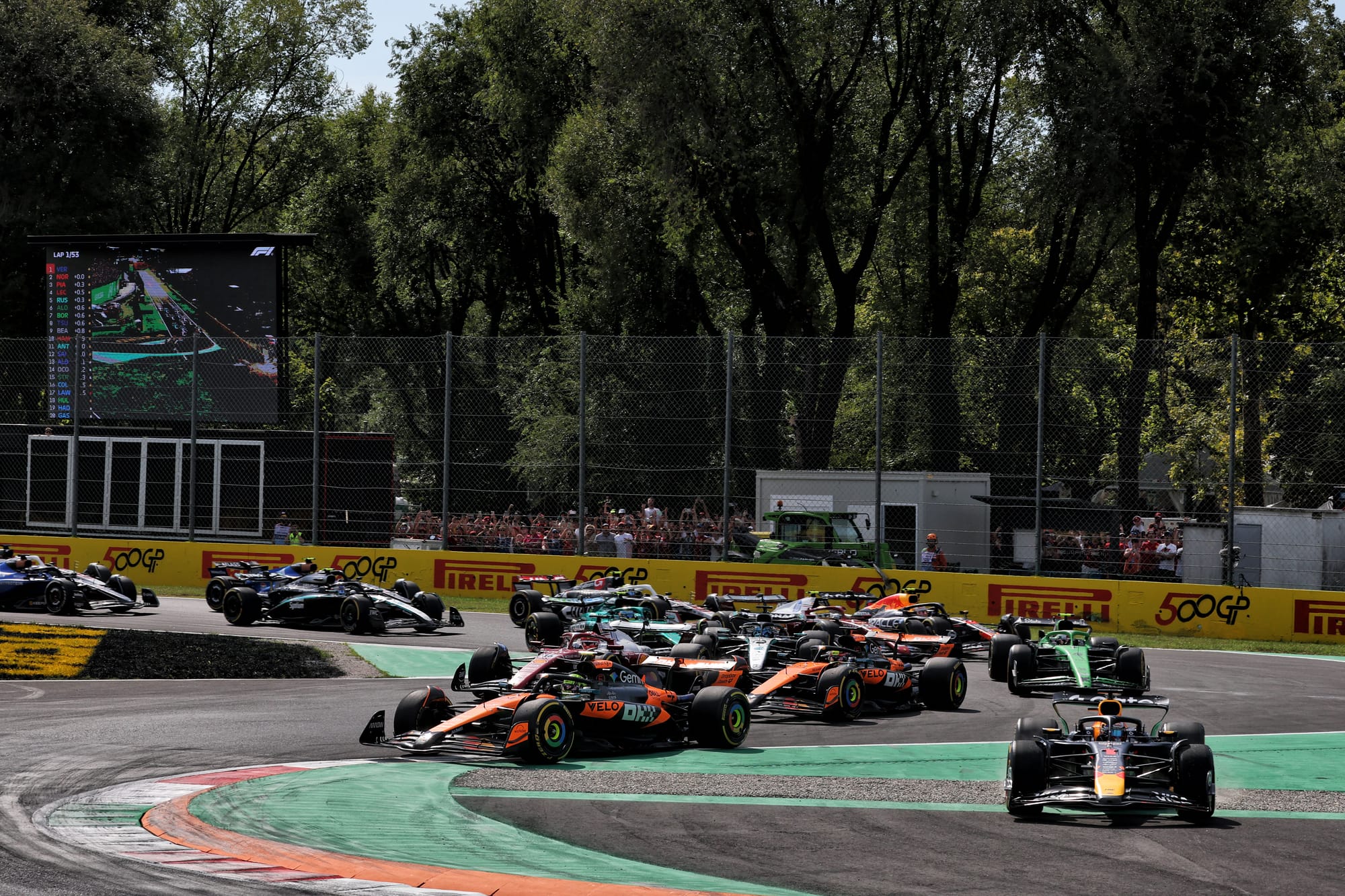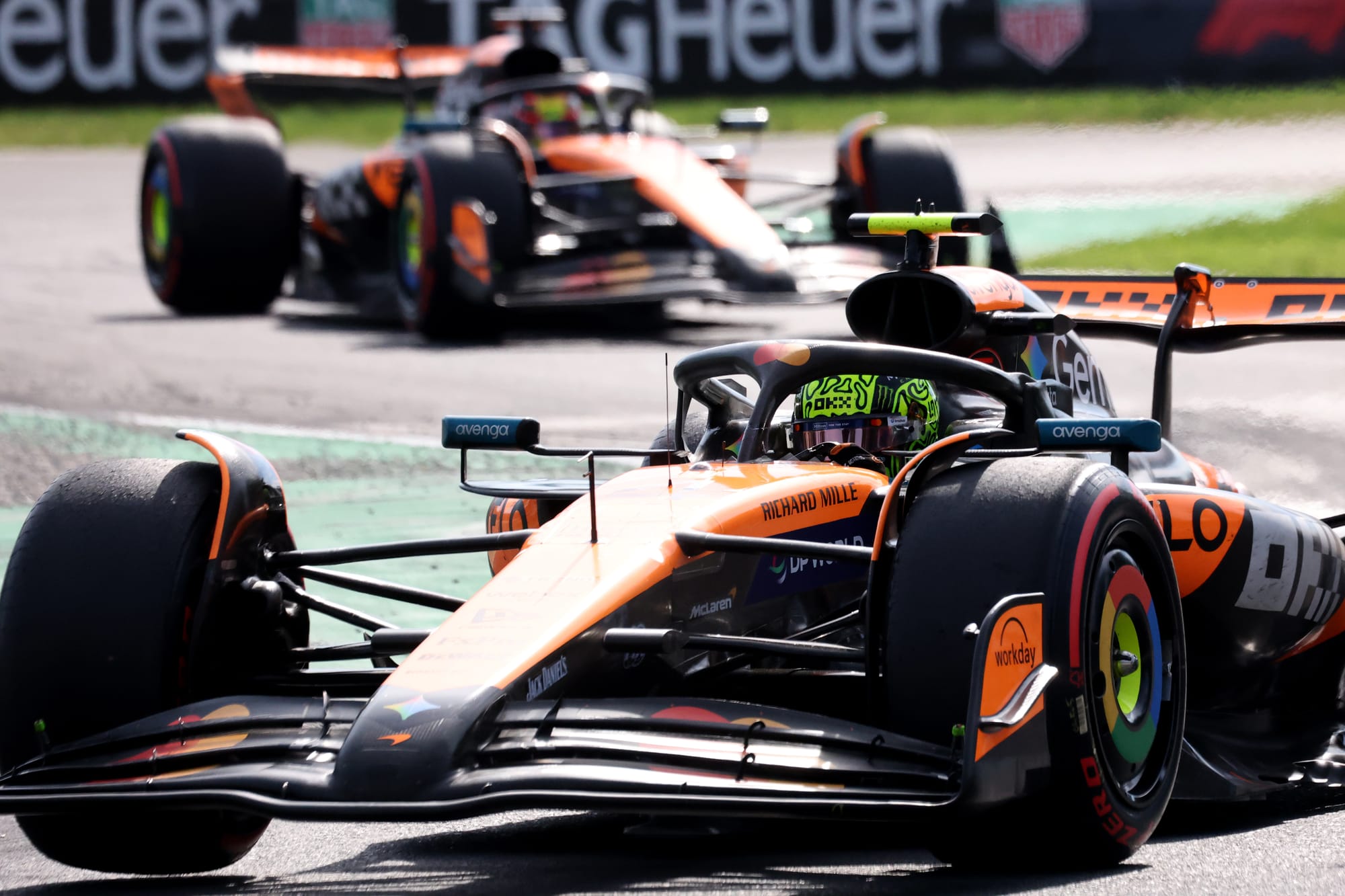The McLaren Formula 1 team’s been here before. A long time ago, in a very different era under very different leadership.
Both Mika Hakkinen’s first two F1 wins were gifted to him at the team’s request by David Coulthard as McLaren decided it was right to intervene given the circumstances in which its cars ended up in the order they had - i.e. the additional time Hakkinen lost by running long in front of Michael Schumacher’s Ferrari as McLaren contentiously did Williams a favour in the 1997 title decider at Jerez, and the unnecessary Hakkinen pitstop after a misheard radio message that cost him the 1998 Melbourne lead.
As the McLarens lapped the field that day in Australia, it looked like the team’s intervention might have long-term repercussions - with its drivers surely beginning an in-house title fight and walkover of the season. Who got 10 points in Melbourne and who got six felt like it might really matter seven months later.
It never came to that. Schumacher was too big an external threat and Hakkinen dominated Coulthard for most of the next two seasons after that anyway. The Melbourne instruction added to the permanent unease Coulthard felt over how the team viewed him relative to Hakkinen, but it didn’t swing an F1 championship.
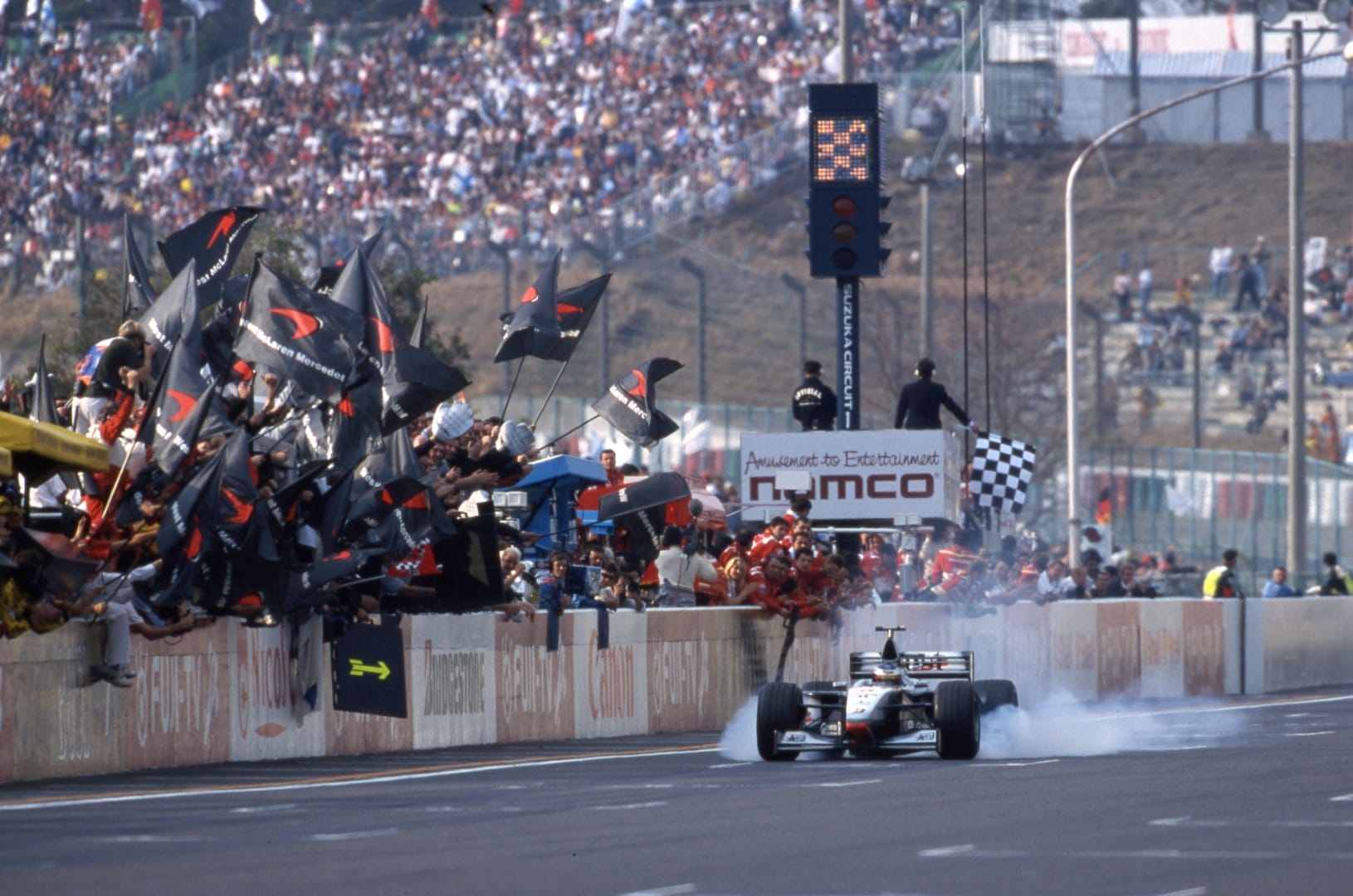
Nearly 30 years on, the problem McLaren’s created with its Monza intervention over Oscar Piastri and Lando Norris’s positions won’t go away so easily.
McLaren has put a huge amount of pressure on itself for the rest of this F1 season and now it really cannot afford to make any mistakes with either Norris or Piastri in the title run-in.
Its 2025 situation as it dominates both championships is the ultimate manifestation of the cliched ‘good problem to have’, with McLaren trying to ensure both drivers get a fair crack at the title.
But trying too hard to ensure that now risks creating its biggest (only?) problem of the season.
The fight has been so good-natured that Piastri and Norris have barely registered a complaint between them, even when Norris clumsily drove into Piastri in Canada, and Piastri launched a couple of near-miss moves in Austria and Hungary. That’s as ‘bad’ as it’s got.
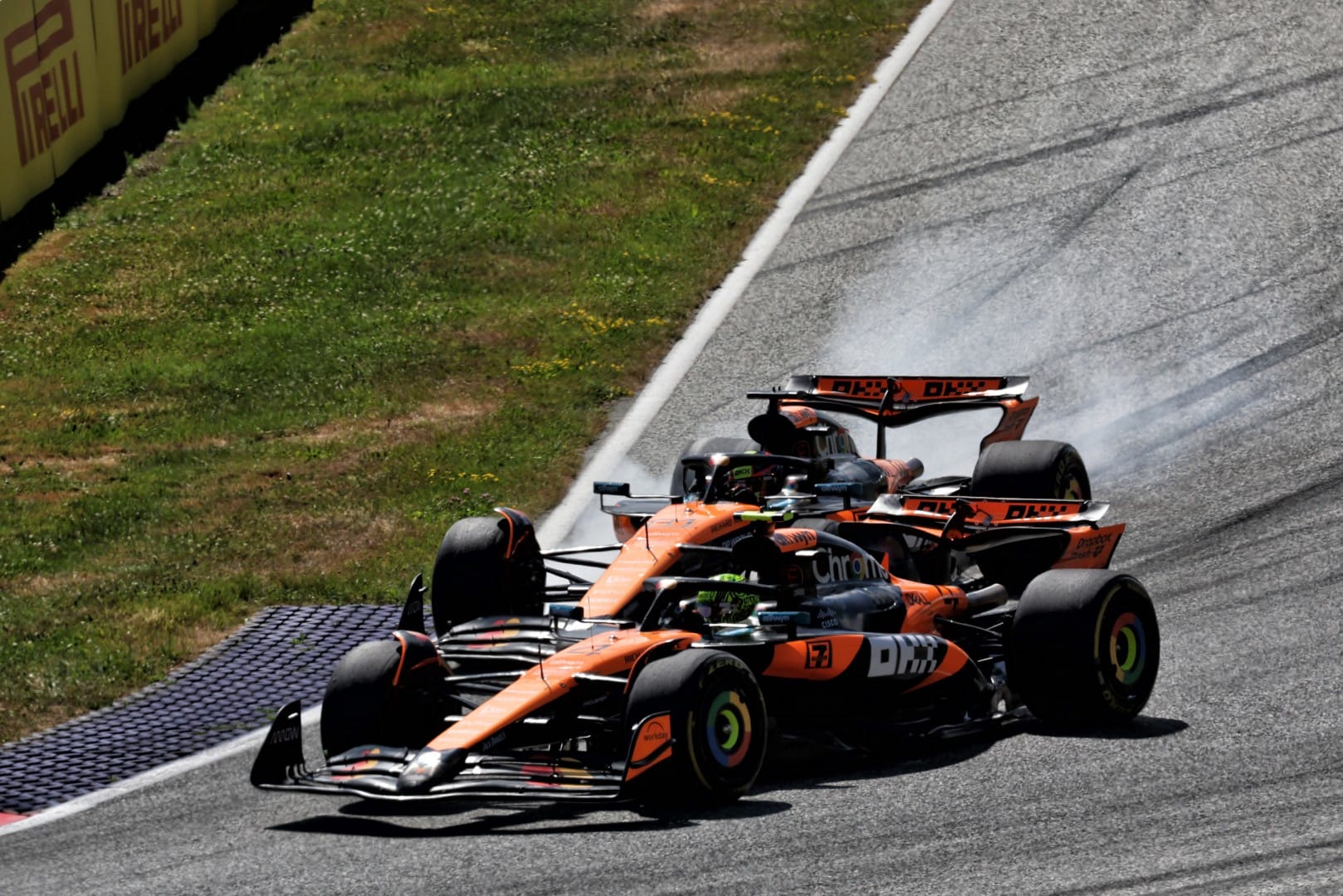
It’s what McLaren has done that has brought criticism from fans and increasingly intense scrutiny, never more so than in the Italian Grand Prix.
Intervening at Monza and ordering Piastri to give a place back to Norris gained by McLaren’s error in a pitstop was an escalation in the team trying to practice what it preaches in terms of fairness. It was comparable to (a reluctant) Norris being moved aside in Hungary last year as Piastri took his first win, after Norris had jumped ahead because McLaren adjusted his strategy to cover off a threat from Lewis Hamilton’s Mercedes.
That level of intervention in pursuit of McLaren’s definition of intra-team fairness was awkward enough but there wasn’t a title on the line between its drivers at the time.
Monza showed how far McLaren is willing to go to back up its principles with action: and that exposes a problem.
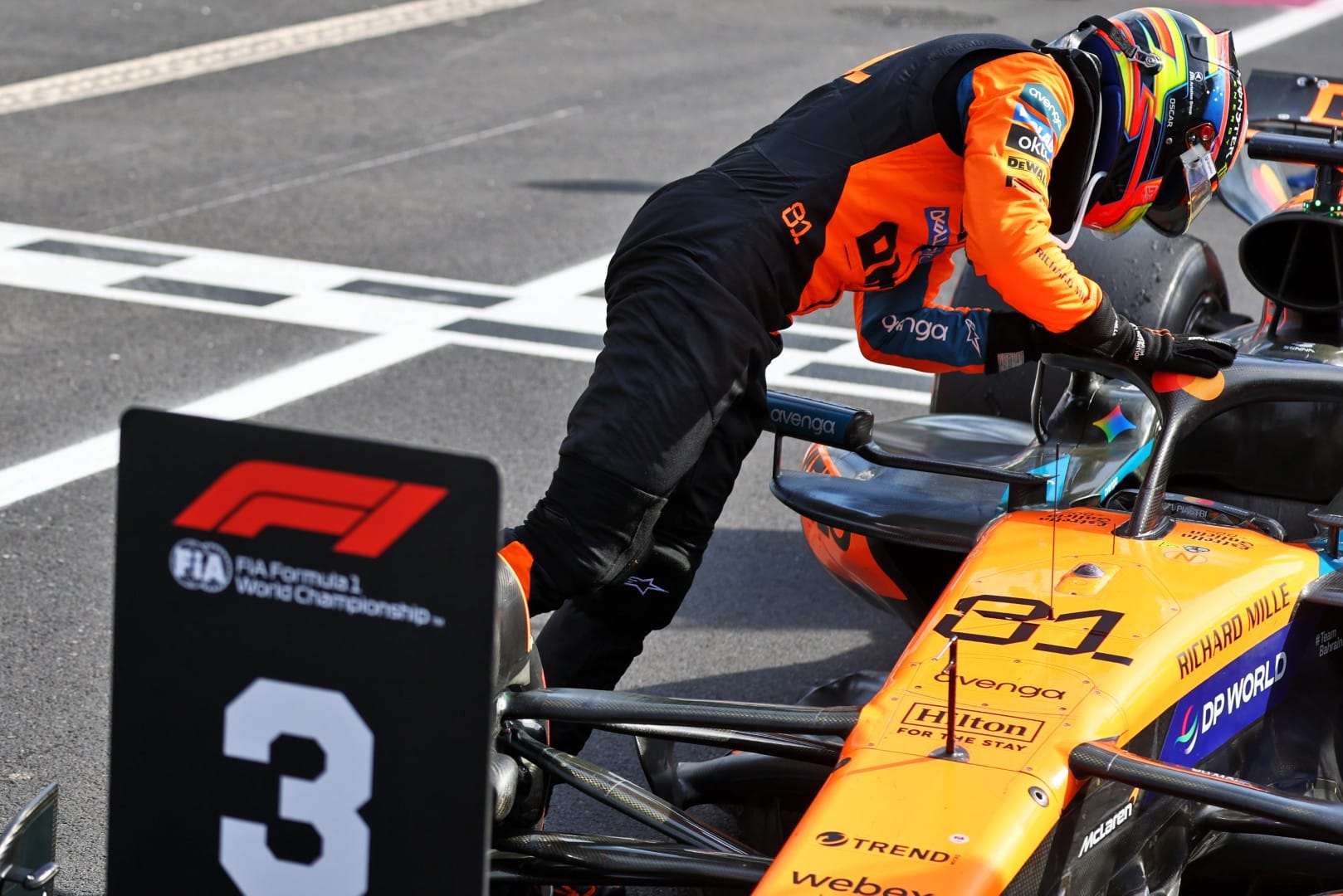
Unless McLaren is absolutely perfect for the rest of the season, which is highly unlikely, it will need to intervene again in order to be consistent. Otherwise, one way or another, it will tip the scales in this fight.
And it will need to make arbitrary judgements at every race on where the line is in terms of interfering with the outcome.
In isolation that was very easy to do in Italy: a blatant team mistake made by a shared party, rather than what could be defined as 'Piastri's side of the garage', in a race Piastri was unlikely to beat Norris in, and a situation easily rectified with the cars running together on track and under no immediate threat from behind.
But it might not be so simple again.
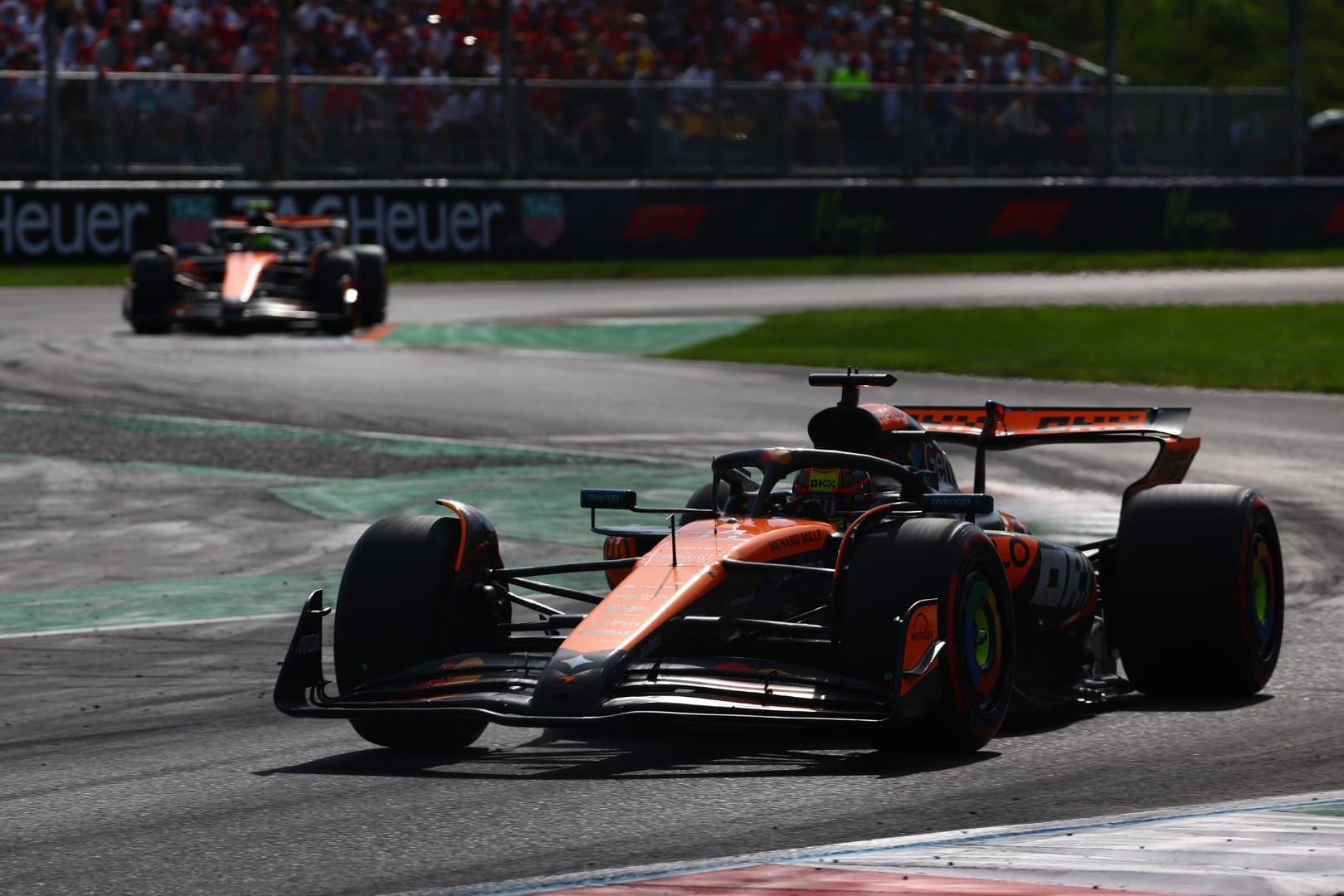
What about a different kind of team operational error on the car side? It’s nonsense to suggest that if one car retires, or crashes out, the other car must be parked to ensure total parity. But what about a non-terminal technical problem, like when Norris suffered a brake issue in China?
Imagine that happens again, but to the leading car. Would McLaren have to urge the chasing car not to take advantage?
And where do you draw the line at what constitutes a sufficiently ‘bad’ pitstop to intervene with a ‘corrective’ team order? When a position is lost?
Over the last five events, Norris pitstops have taken a second longer on average than Piastri’s. In a close fight between the two, that can just as easily impact the outcome as what happened at Monza.
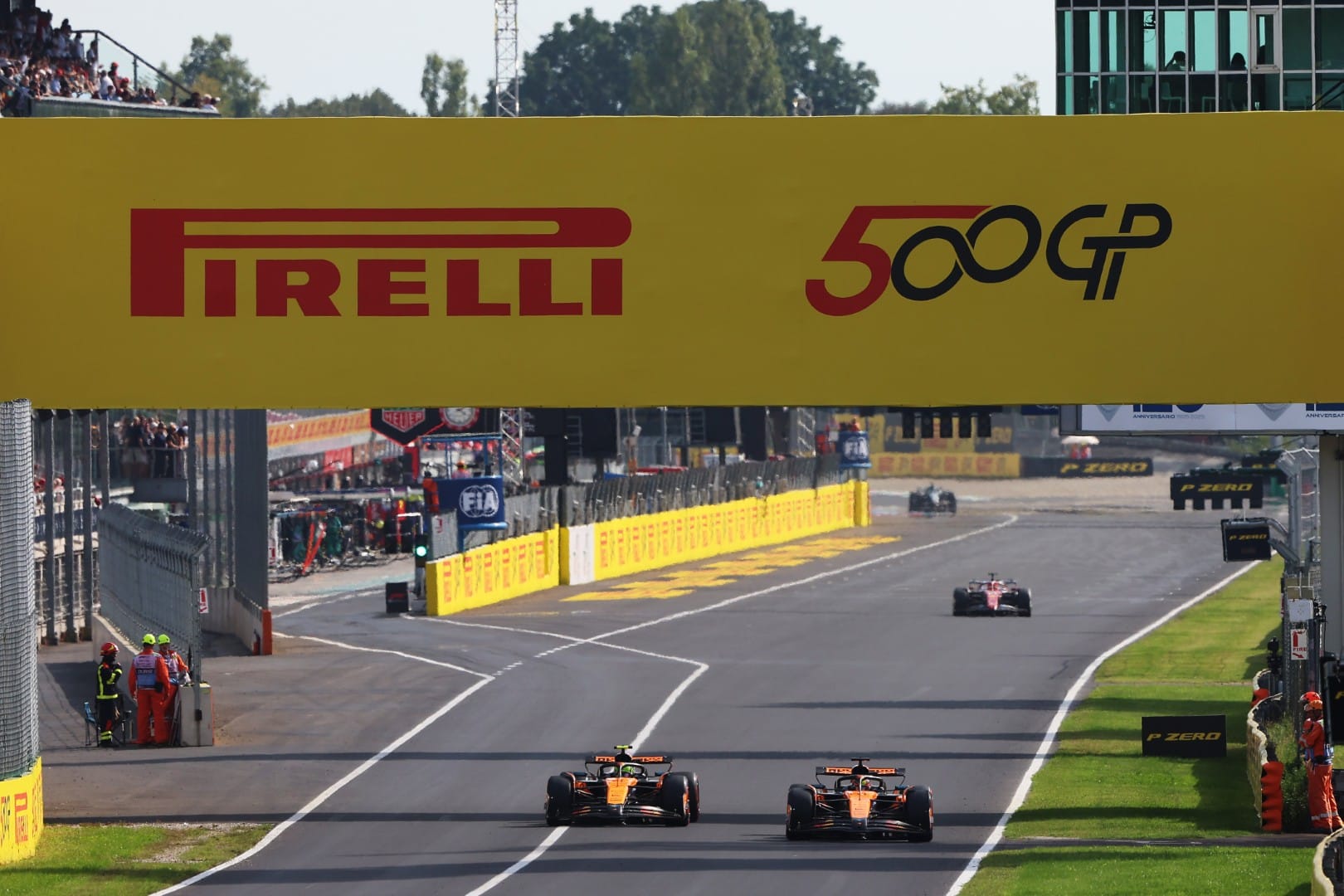
What if a mediocre, but not obviously disastrous, pitstop means the two drivers don’t swap position, but it allows the chasing car close enough that it completely changes the dynamic of a race?
It’s all hypothetical, but that’s the point. If McLaren didn’t already have plans in place for the various potential outcomes in a race outside of its drivers’ control, the intervention in Italy means the team bosses might now need to work that out to avoid endless circular arguments and even more fanbase polarisation. Plus surely eventually an impact on the drivers.
And this all relies on the two drivers playing ball - which may be harder to do if there is more on the line than a six-point swing that Piastri could ultimately afford to swallow on this occasion.
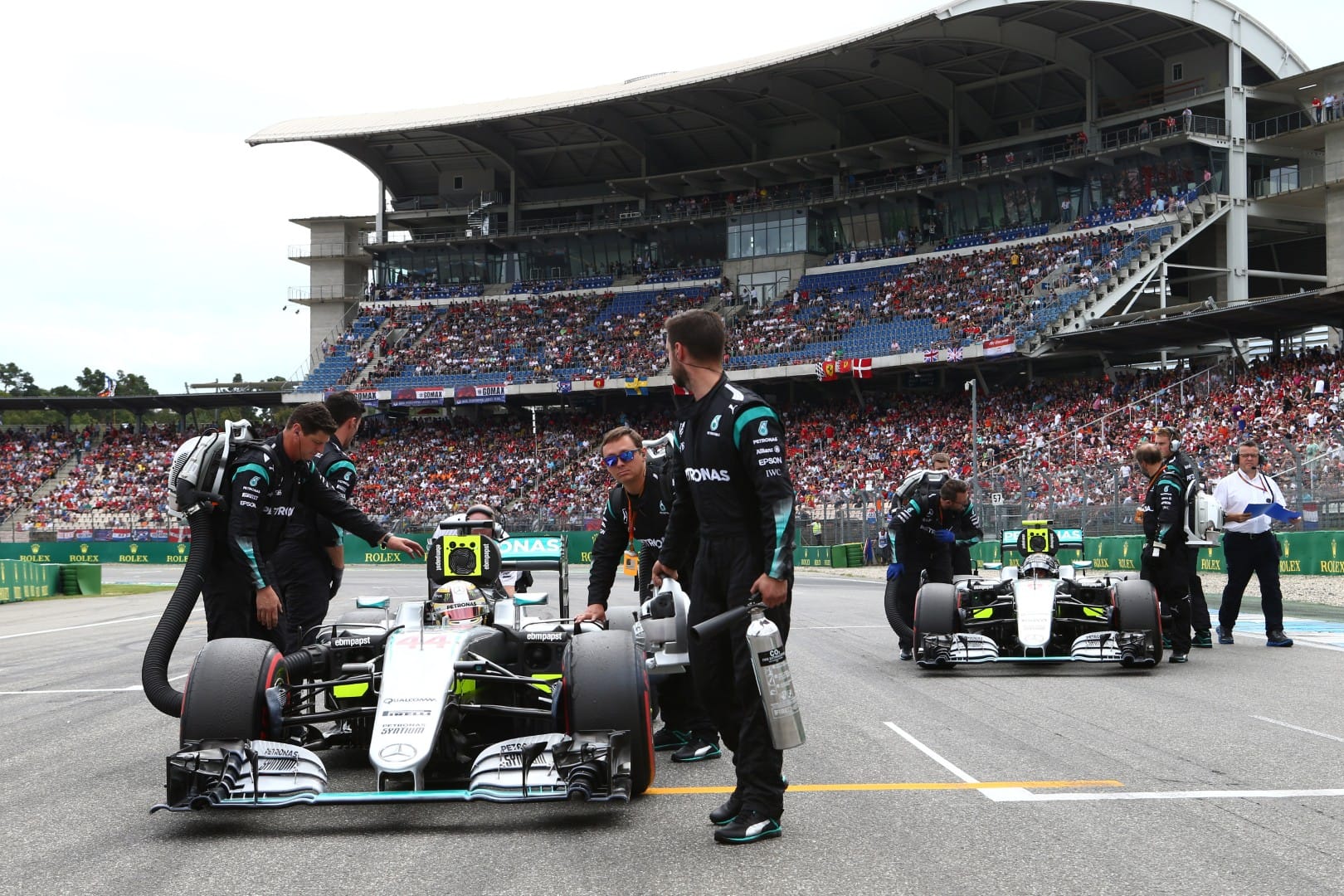
F1’s first intra-team title fight since Mercedes’ Hamilton vs Nico Rosberg angst-fest of 2016 doesn’t have the personal animosity that underpinned the Hamilton/Rosberg rivalry, and there is a desire from both Norris and Piastri to ‘do right by the team’.
That feeds into McLaren wanting to try to control certain circumstances very closely while at the same time trying to let the drivers be free to fight.
Compared to Mercedes back then, for example, the two McLarens have greater strategic flexibility. But on the flip side there is clearly an expectation from the team, and an acceptance from the drivers, that this requires them to fall in line at times when they don’t want to.
This wouldn’t happen at one-sided Red Bull, for example, but even at Mercedes the drivers would do their own thing. Hamilton ignored team orders against Rosberg more than once, so it’s not like Mercedes didn’t try - it was just futile.
In hindsight, team boss Toto Wolff says he would handle 2016 differently, although he’s never really opened up on how.
But it’s unlikely he’d waste his time trying to orchestrate events as much as McLaren has opted to this year.


